#OECD
Photo

OECD & BRICS +
60 notes
·
View notes
Text
The world’s largest Muslim-majority nation is set to normalize relations with the Jewish State, according to a report Thursday by the Ynet news outlet.
The deal was reportedly reached after three months of secret talks between Indonesia, Israel and the Organization for Economic Cooperation and Development (OECD), which the Jakarta government wants to join, and which Israel belongs to.
After weeks of talks, the OECD and Indonesia agreed that Jakarta would have to establish diplomatic ties with Israel prior to the vote to approve its entry to the organization.
Indonesia has opposed Israel’s military operation in Gaza that followed the invasion and war launched by Hamas on October 7. Jakarta also supported South Africa’s lawsuit against Israel at the International Court of Justice accusing Israel of genocide.
Earlier this week, however, for the first time an Indonesian aircraft participated in an airdrop of humanitarian aid into Gaza. It is also the first time an Indonesian aircraft has flown through Israeli airspace.
“I want to sincerely thank you for our very constructive discussions over the past few weeks and for Israel’s important decision to allow talks between Indonesia and the OECD regarding its joining the organization,” OECD Secretary-General Mathias Cormann wrote to Foreign Minister Israel Katz in a formal letter notifying him of the agreement.
“As discussed with you and Prime Minister Netanyahu, the precondition of the start of diplomatic relations prior to any decision to invite Indonesia as a member of the organization is included as a clause in the OECD Council’s official conclusions for the talks … As we discussed, this process will have a positive long-term impact, so it was crucial to allow the process to begin,” he added.
New membership in the OECD requires the establishment of diplomatic relations with all of the organization’s 38 member states, in addition to unanimous approval of the application.
It’s not a simple process. Indonesia’s legislation, policies and regulations will have to undergo review by 26 different committees — a process that could take up to three years — before receiving approval to join the OECD. Each of those committees will include an Israeli expert who will have the right to veto Indonesia’s accession if the country fails to make good on its promise to normalize ties with the Jewish State.
“I am pleased to announce the Council has officially agreed to the clear and explicit early conditions according to which Indonesia must establish diplomatic relations with all OECD member countries before any decision is made to admit it to the OECD,” Cormann wrote two weeks ago in a letter approved by Indonesia before it was sent to Israeli Foreign Minister Israel Katz.
“Furthermore, any future decision to accept Indonesia as a member of the organization will require unanimous agreement among all member countries, including Israel. I am convinced that this provides you with assurance at this crucial point,” the letter read.
In response, Katz sent a letter back to Cormann, welcoming the news.
“I share your expectation that this process will constitute a change for Indonesia, as I anticipate a positive change in its policy toward Israel, especially abandoning its hostile policy toward it, leading the path to full diplomatic relations between all sides,” Katz wrote.
#palestine#indonesia#israel#oecd#free palestine#from the river to the sea palestine will be free#boycott divest sanction#genocide#ethnic cleansing
8 notes
·
View notes
Text

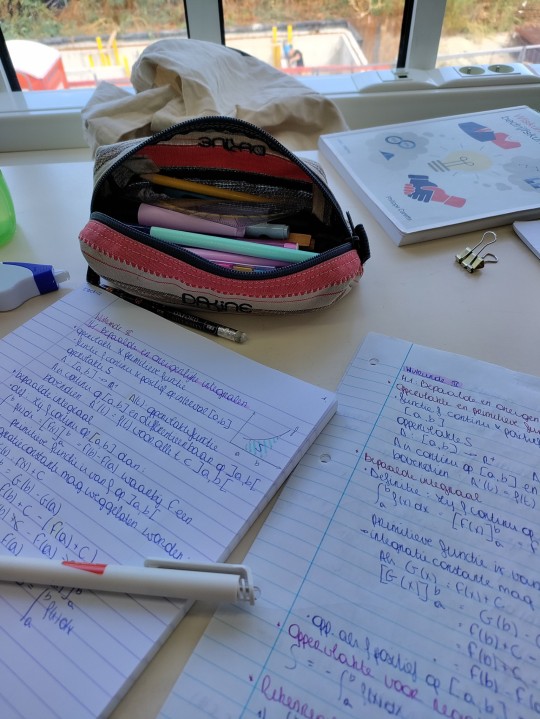
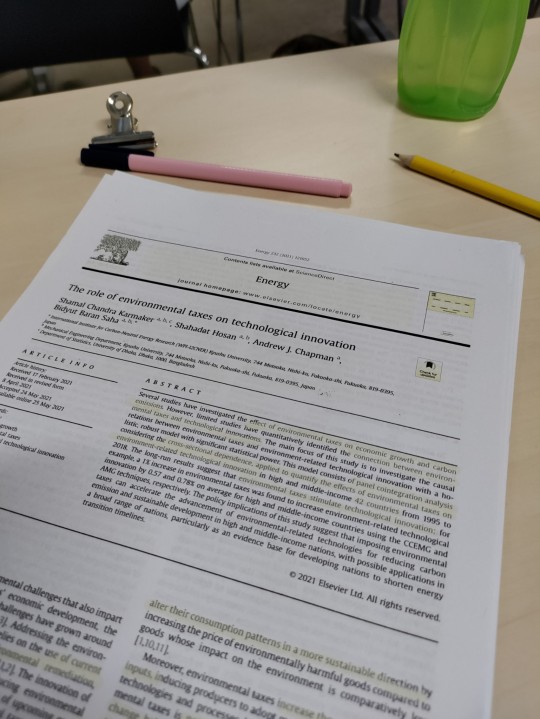
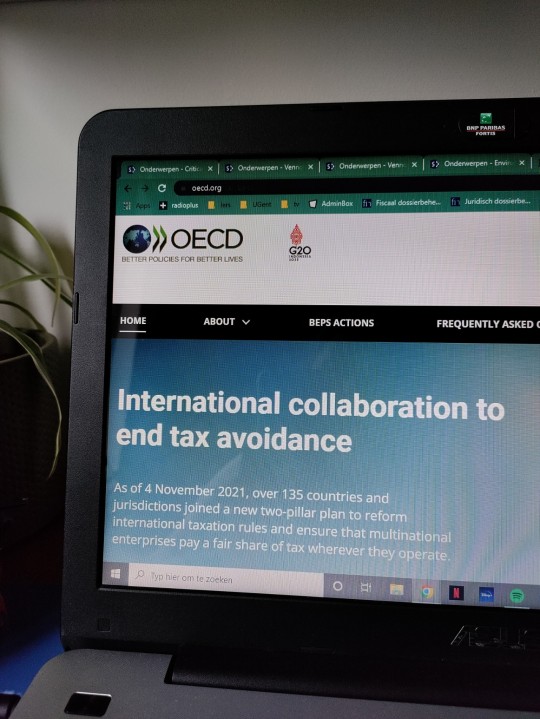
27-08-2022
I had my first retake exam yesterday. It was maths which I'm horrible at but I feel it went pretty good? I don't want to hype myself up because then I will probably be disappointed when I get my grades back lol
I had a meeting on Wednesday with a professor to talk about subjects for my masters' thesis and I was so prepared but I was only in her office for 10 minutes lmao, I thought it was going to be more in detail.
I have a second retake exam next Friday, it's also maths :( it continues on the knowledge from the first maths.
#studyblr#mystudydiary#mystudydiary-blog#my post#studying#study place#maths#exams#august 2022#pillar 2#oecd#tax#taxation
186 notes
·
View notes
Text
pisa in germany

„The Programme for International Student Assessment (PISA) is a worldwide study by the Organisation for Economic Co-operation and Development (OECD) in member and non-member nations intended to evaluate educational systems by measuring 15-year-old school pupils' scholastic performance on mathematics, science, and reading.“
3 notes
·
View notes
Text
EU secured agreement to stop sending waste to countries incapable of recycling it
EU member states and lawmakers have reviewed bloc’s rules on transporting waste and halting exports of certain types of waste to third countries that cannot properly treat it, Reuters reports.
“Exports of certain non-hazardous wastes and mixtures of non-hazardous wastes (…) will be allowed only to those non-OECD countries that consent and fulfil the criteria to treat such waste in an environmentally sound manner.”
The Parliament added that respect for international workers’ rights would also be taken into account. The European Commission proposed in 2021 to overhaul EU rules on waste disposal to make it harder for member states to offload rubbish to more impoverished countries.
The EU will finally assume responsibility for its plastic waste by banning its export to non-OECD countries.
EU countries must stop sending plastic waste to poorer countries within two and a half years after legislation comes into force, parliament has said.
Read more HERE

#world news#world politics#news#europe#european news#european union#eu politics#eu news#eu foreign policy#eu law#eu economy#waste management#waste removal#recycling#oecd
3 notes
·
View notes
Text
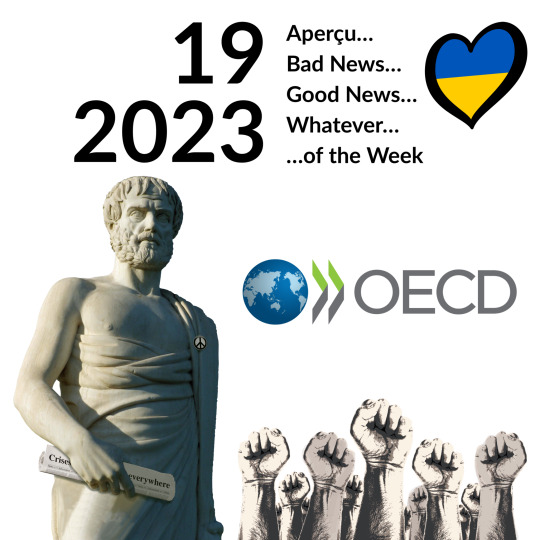
2023 / 19
Aperçu of the Week:
"There is a crack in everything. That's how the light gets in."
(Leonard Cohen, singer-songwriter and poet from Montréal)
Bad News of the Week:
The Organization for Economic Cooperation and Development (OECD) forecasts that Germanys economy will continue to grow. The easing in supply chains, the high order backlog and the revival in foreign demand would ensure a gradual economic recovery in Germany, says the OECD's latest economic report. So the threat of recession does not seem to be coming. So all is well? No. Because pretty much everything else in the report for Germany is negative.
The OECD began its work (still as the Organisation for European Economic Co-operation OEEC) after World War II to provide scientific support for the Marshall Plan funds for economic reconstruction in Europe. In the spirit of Keynesianism, it independently evaluates national developments and economic policies always in the context of the national economy - with an emphasis on "national", so the people. In other words, a kind of voice of reason.
And this voice calls Germany to more action in many areas. Because the path to mastering the necessary ecological and digital transformation is a long one. For example, it calls for the modernization and digitization of public administration. This must become leaner, less complicated and, above all, faster, especially in the area of infrastructure planning. In addition, spending efficiency must be improved and prioritized, while at the same time tax concessions must be reduced.
In addition, the report notes, more decisive action needs to be taken on the mobility turnaround, where many opportunities are not being exploited. Which can also be applied to necessary changes in the energy and agriculture sectors. Key message: too little is being done for climate protection. And too slowly. In concrete terms, the pace of emissions reduction would have to be tripled (!) in order to achieve the planned - and there is no alternative - climate neutrality by 2045. A realistic look at the willingness of decision-makers and voters to change makes this seem illusory. And what will happen then? One thing is certain: nothing good.
Good News of the Week:
The big strike has been averted. The EVG - the largest of the many railroad unions - had announced a strike for 50 hours starting tonight. Which would have paralyzed not only all long-distance traffic in the center of Europe (even foreign companies would not be able to cross Germany if the infrastructure control was not active), but also freight and local traffic. And this with demands that I consider excessive, despite all my fundamental sympathy for the representation of employee interests: A 10 percent wage increase is not enough for the union. Excuse me?
I was already thinking about how to get to the office on Monday and Tuesday, since I can't park there. And the public parking lots in the outskirts of Munich, where you can transfer to the (non-striking) subway, have nowhere enough capacity. And my son's return from a student exchange in Paris on Tuesday evening wouldn't have worked either. Although they have tickets for the French TGV, but it could not go on German rails. But now, fortunately, the strike has been called off.
A judge had yesterday intervened in summary proceedings against the union, predicting that the "proportionality" of the strike would not stand up to due process, which would have been invoked by the public Deutsche Bahn AG, by far the largest railroad company in Germany. Again, the voice of reason. As I said, I am an advocate of employee interests. But when their enforcement, because it involves infrastructure, affects large sections of the population, a special responsibility goes with it.
I would have come to some sort of arrangement, and so would my son. Uncomfortable, but not impossible. But an employee has to show up at his workplace. If he is unable to do so due to a loss of transportation, he is left alone with this; the principle of "force majeure" does not apply. There are many commuters in Munich from the surrounding area, even from further away, 100 km are not uncommon. They can't work from home because they work in industry, for example, and can hardly operate their welding machine or drive their forklift from home. Should they then call a cab? Or take a bicycle? That's absurd.
That's why I'm glad that there is a neutral, higher-level authority in the form of the courts. What intervenes when - as in this case - there is no longer any proportionality to fight for one's own interests in a fundamentally justified way. The so-called autonomy of collective bargaining is a good institution. It gives employees and employers the opportunity to autonomously negotiate basic rules for their cooperation without the government being able or allowed to interfere. However, when positions are deadlocked, as in this case, it takes the state to intervene in a regulatory capacity. In order to do justice to its existential care for the population.
Personal happy moment of the week:
In the week that is ending, my daughter turned 20. And next week my son will be 15. When I think of younger children who wake you up three times in the night, cheat Lego bricks under bare feet, throw up all over a silk shirt, roll on the floor screaming in the supermarket, ask for a dog or a Playstation every day, think it's funny to hide the car keys and never ever want to go to school again - I am above all one thing: relieved that they are out of the woods.
I couldn't care less...
...about today's state elections in Bremen, a city-state in the north. Because there, by far the highest gains went to a pseudo-party called "Citizens in Anger," which nearly quintupled to 10.5%. It has neither a meaningful program nor capable personnel, but draws its raison d'être solely from its name. Why is it elected? According to a poll conducted before the polling stations today, primarily for three reasons: "Stands for values that the CDU (conservative) used to represent.": 74%. "Disappointed with other parties.": 66%. "Only vote for them because the AfD (right-wing populists) can't be elected this time.": 54%. Well thank you very much. Sometimes I regret that the only qualifications you need to vote are citizenship and age.
As I write this...
...I realize that listening to the radio is yesterday's news for me. When I smoke a cigarillo outside, I involuntarily hear what music is playing on the radio at the neighbor's - a farm, where it resounds over the yard. One after the other, a cheap German pop song from the 70s, "It's raining men" and Kraftwerk came on. Phew. Cheers to Apple Music and my own playlists!
Post Scriptum
Actually, the Eurovision Song Contest 2023 would have taken place in Ukraine last night. Because the winning country of the previous year always hosts the contest in the following year. For obvious reasons, this time it will be the second-placed Great Britain. Since the security situation for an international event in Liverpool is undoubtedly better than in Kiev. And I write this before it even started: it was a great show despite dubious quality music. And the - due to the actually hosting country - colors blue-yellow also perfectly fit the winner Sweden. Once again I wonder if I am woke, as I like this event, which is considered the biggest queer event in the world.
PS: I should be right. Also with the already traditional punishment of Germany: last place - as in the years before. Which has nothing to do with the songs or the performers. But with - in this case missing - sympathy. A category in which we Germans have nothing to gain. To quote the refrain with which our candidate Jendrik lost two years ago: "I don't feel hate, I just feel sorry."
#thoughts#aperçu#good news#bad news#news of the week#happy moments#politics#leonard cohen#oecd#germany#economy#climate change#Strike#railroad#Union#deutsche bahn#kids#birthday#coming of age#bremen#cigarillo#Radio#eurovision#liverpool#ukraine#apple music#voting#critical infrastructure#force majeure#public sector
3 notes
·
View notes
Photo

Want to understand and evaluate how your chemical will react in an aqueous environment? The purpose of Hydrolysis, OECD 111 study is to determine the rate of hydrolysis of a chemical in water at different environmentally relevant pH-values by quantifying the test substance concentration after different incubation periods and at different temperatures. Our team has the necessary expertise and experience to help you with this test. Contact us at [email protected]
2 notes
·
View notes
Text
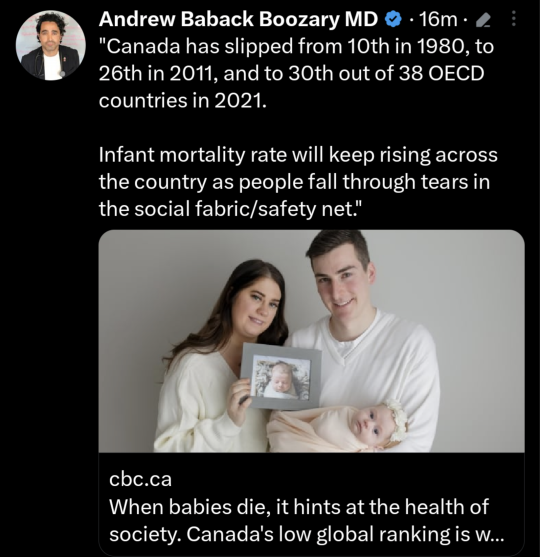
Ottawa couple Mario and Jennifer Bazinet lost their first son — Beau Paul — at three and a half months old. Mario went to get his son and found him lifeless in his crib on Dec. 13, 2020.
"Our world flipped upside down," said Mario, 31. Jennifer, 29, now volunteers for Baby's Breathe Canada, a foundation devoted to Sudden Infant Death Syndrome (SIDS), the official cause of her son's death.
"When a baby dies unexpectedly it's just not the right order of how life goes," she said. "Your whole world falls apart."
Thousands of Canadian families face this gut-wrenching grief, and though Canada's infant mortality rates have improved over time — from about 10.9 deaths out of 1,000 births in 1980 to 4.4 deaths per 1,000 births in 2021 — the country has slipped in its ranking of infant mortality among wealthy, developed nations, according to data from the Organisation for Economic Co-operation and Development (OECD).
Canada went from ranking 10th out of 24 OECD countries in the 1980s to 30th out of 38 OECD nations in 2021.
#Twitter#Andrew baback boozary#Canada#Oecd#Safety net#Cbc#Babies#Society#Health#Global ranking#Analysts#Wealthy#Ottawa#Mario bazinet#Jennifer bazinet#Beau paul#December#Baby's Breathe canada#Sudden Infant Death syndrome#Sids#Canadian#Organization for Economic cooperation and development#Nations
2 notes
·
View notes
Quote
Sick leave is a major sticking point not just for rail union members. The US is one of only two countries in the 38-member Organization of Economic Cooperation and Development without a national law guaranteeing paid sick leave for its workers. (The other, South Korea, is now trialling a paid sick leave programme.) Though 16 states have passed laws requiring paid sick leave over the last decade, one in five workers across the country still does not have access to the benefit, with low-wage workers most at risk. The issue has emerged repeatedly in labour disputes in recent years, as workers, empowered by a strong job market and contending with coronavirus and an unusually severe flu and virus season, demand more from employers.
Natalie Sherman, ‘Rail strike is cancelled - at the cost of paid sick leave’, BBC
2 notes
·
View notes
Text
Lithuania
General Information
Lithuania is one of the Baltic countries in Northeastern Europe. In the 13th century, Lithuanian tribes united to withstand outer threats, with Mindaugas crowned king in 1253. In 1386, a Union between Lithuania and Poland was created due to the marriage of Lithuanian Grand Duke Jogaila and Polish Queen Jadwiga, developing to the Polish-Lithuanian Commonwealth in 1569. With the partitions of the late 18th century, the country ceased to exist and Lithuania mostly fell under Russian rule. In 1918, Lithuania gained independence until getting annexed by the Soviet Union, of which it stayed part until the Soviet Union’s collapse in 1991, during the latter part of World War II. Today, around 86% of the 2.8 Million inhabitants are ethnic Lithuanians, 5.7% are ethnic Poles, 4.5% ethnic Russians. About 77% of inhabitants are Roman Catholic. The capital is Vilnius.

~ Anastasia
Economy
The economy of Lithuania is the largest economy among the three Baltic states. Lithuania is a member of the European Union and belongs to the group of very high human development countries and is a member of the WTO and OECD. In the 1990s, Lithuania rapidly moved from a centrally planned economy to a market economy, implementing numerous liberal reforms. It enjoyed high growth rates after joining the European Union along with the other Baltic states, leading to the notion of a Baltic Tiger. Lithuania's economy (GDP) grew more than 500 percent since regaining independence in 1990. The Baltic states have a combined workforce of 3.3 million people, with 1.4 million of these working people living in Lithuania.

~ Damian
Sources:
https://www.britannica.com/place/Lithuania
https://en.wikipedia.org/wiki/Economy_of_Lithuania
2 notes
·
View notes
Text
Per un automobilista quali sono le probabilità di *sopravvivere_senza_danni* a un incidente in auto a più di 50 km/h? Poche
I crash test delle case automobilistiche vengono normalmente fatti a 55 km/h e si calcola che sia molto difficile sopravvivere a un urto contro un ostacolo fisso a 80 km/h, anche se non è impossibile (per chi ha molta fortuna).
Come si vede dal diagramma sopra, per chi è a bordo di un veicolo, mediamente probabilità di morte crescono quasi verticalmente sopra i 50 km/h, per essere quasi 100%…

View On WordPress
#automobile#ciclisti#collisioni stradali#incidenti stradali#OECD#pedoni#scontri stradali#scontro frontale
0 notes
Text
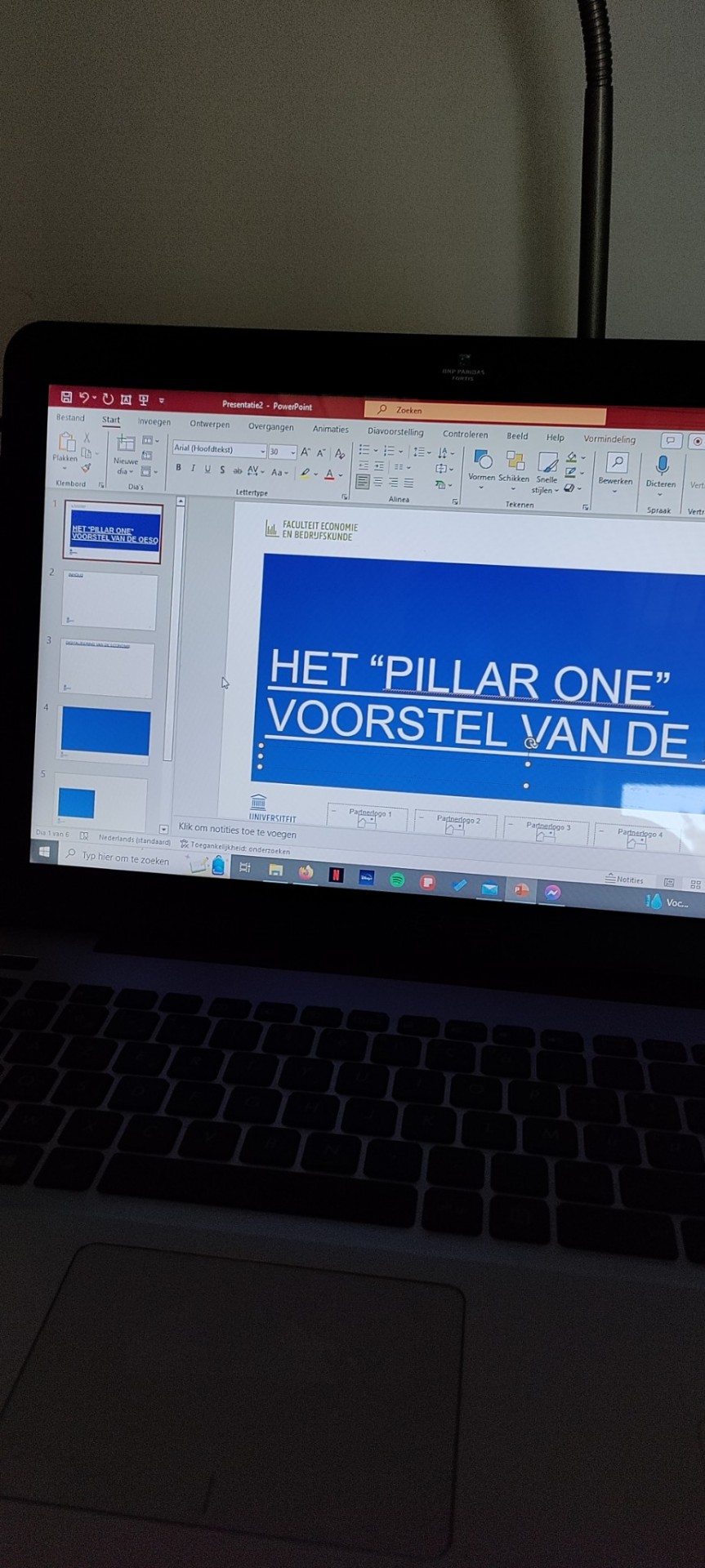


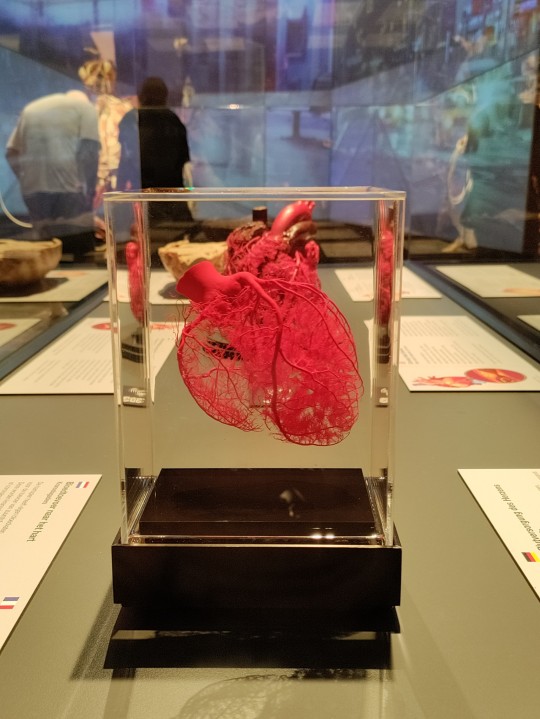
04-09-2023
My thesis defense is tomorrow so I'm preparing my presentation. As I'm procrastinating, here are some pictures from the last few weeks.
#studyblr#mystudydiary#mystudydiary-blog#my post#study place#thesis#dissertation#september 2023#almost graduated#oecd#körperwelten#body worlds#dog#my doggo
10 notes
·
View notes
Text
Umweltsünder Kaffee?
Für Kaffee braucht man Wasser. Doch wer meint, es sei mit der Wassermenge zum Kaffee Kochen getan, der irrt. Schon beim Anbau werden Unmengen von Wasser verbraucht. Die Redaktion des Magazins Warenvergleich hat für 28 Lebensmittel recherchiert, wie viel Wasser bei deren Herstellung verbraucht wird und kommt zu einem überraschenden Ergebnis: Für ein Kilo Röstkaffee müssen ganze 21.000 Liter…

View On WordPress
#coffeenewstom#Kakao#Klima#Natur#Naturschutz#OECD#Umwelt#Umweltbilanz#Umweltsünde#Umweltsünder#Warenvergleich#Warenvergleich.de#Wasserverbrauch
0 notes
Text

Güler Sabancı: “Kadınların Eğitim ve İstihdama Erişimi Temel Bir İnsan Hakkıdır ve Kalkınma İçin Ön Koşuldur”
Sabancı Vakfı Mütevelli Heyeti Başkanı Güler Sabancı, 8 Mart Dünya Kadınlar Günü kapsamında bir mesaj yayınladı. Güler Sabancı mesajında, “Türkiye, OECD ülkele...
0 notes
Text
Studie: Corona-Schulschließungen kosten fast eine Billion Euro
Unzensuriert:»Die Auswirkungen der Schulschließungen in der Corona-Zeit dürften laut der Organisation für wirtschaftliche Zusammenarbeit und Entwicklung (OECD) dramatisch sein. Dabei klingen die errechneten Folgen fast unglaublich. http://dlvr.it/T2ssbH «
0 notes